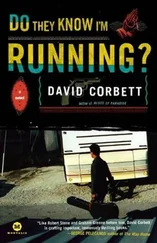There was nothing to hope for now. No home. No tomorrow. And strangely, despite everything that had happened, that truth came to him unfreighted with bitterness. He was no longer tempted to lash out, to scheme, to devise his next step or even think ahead. At that moment, given what he felt and all he’d seen, thinking ahead seemed cheap.
He sat there for perhaps a half hour, awash in grief, feeling lost, but feeling, too, a perverse unburdening. In time he realized why. He no longer felt angry. After so much plotting, treachery, botched hope, insanity and carnage, anger seemed ridiculously beside the point. And that absence of anger, it felt like grace. Like being freed from prison.
He got out of the car, climbed atop the trunk and sat there, watching till daybreak smeared the easterly horizon with its glare. He knew that regret would soon take hold of him. He’d be wrestling with it for the rest of his life, he supposed, but at that particular moment he felt nameless, free of the illusions embedded in his past and no longer fooled by the future. Even the present seemed immaterial. Like light. And that, he guessed, was its perfection.
He got back in the car, put it in gear and drove to the center of town. In the cramped shelter of a gas station pay phone, he fished quarters out of his pocket and fed them into the coin slot, dialing Waxman’s number.
Waxman picked up quickly.
Abatangelo said, “No sign of Shel, Wax, but I’ve got some art for you.” He barely got it out. Waxman talked over him manically, his voice clipped with phone static. Abatangelo caught the word “alive” and said, “Yeah, I’m alive. I’m fine. Fucking lucky, actually, you’ll see what I mean- ”
“Listen to me, damn it,” Waxman cut him off, shouting.
Abatangelo recoiled a little from the receiver. Fitting it back to his ear, he heard Waxman tell him, “She’s alive.”
The discovery by the police of Pepe’s severed hand, stashed under the front seat of the shot-up car, gave Cesar and Shel the distraction they’d been waiting for. Hugging the shadows, they shuttled down the breezeway stairs and out the back of the property to a steep wooden stair built into the hillside under the eucalyptus trees. The handrail had rotted. Shel took the steps on her fanny, scooting down one by one till they reached the base of the hill.
At the bottom Cesar drew her up, wrapped his arm around her and half-guided, half-dragged her as he had all night, through the trees and the manzanita to the patchy lawn of the Maritime Academy. Down among the Quonset huts they found a pay phone and called a cab.
Cesar had changed into a set of Hidalgo’s clothes, but already blood was seeping through the fabric of his jacket. The stained sleeve hung lifeless beside his body. For strength, just before leaving the apartment, he’d taken three last pulls from the rum bottle and scarfed down two fistfuls of raw liver he’d found moldering in the fridge. Shel’s strength ebbed and surged, one moment propelling her a few more steps, the next failing her altogether. She functioned on nerve alone. No rum for her, no raw meat. When she faltered, Cesar goaded her on with snarls of, “You don’t fool me,” or more simply, “You want to die?”
He pointed to a set of concrete benches near the entrance to the campus, and they made their way among the buildings, trying to avoid the glances of dog walkers already on the Academy campus for morning strolls along the water. High above on the overlooking cliff, the Carquinez Bridge spanned the strait, noisy already with Sunday traffic. Barges drifted underneath, heading inland toward the Delta.
The cab arrived as the police patrol began scouring the top of the hill with flashlights. Beams flickered through the haze among the eucalyptus trees like large distant fireflies. Shel caught herself staring, then Cesar dragged her into the cab.
“The ferry,” he told the driver.
The cab eased up the hill past the guard station, where a gray-clad cadet glanced vacantly into the backseat then waved them on. Halfway up the hill they passed the turnoff into Hidalgo’s cul-de-sac. Over a dozen cruisers gathered at the end. The driver, a husky, older black man, stoopshouldered, wearing a snap-brim cap, followed the swirling lights with his eyes.
“Some damn drug mess, gotta be,” he growled, shaking his head. He looked into his mirror at his passengers, choosing precisely that moment when Cesar was prodding his arm, as though trying to goad it into movement. Shel, fearing the scrutiny, said, “Maybe there’s something on the radio. About the drug thing.”
The driver’s eyes, reflected in the overhead mirror, shifted from Cesar to her. She shot him back a game smile. Nodding, he reached over and tracked the radio dial through sparks and gurgles of static, weak signals and noise. Finally he tuned in a talk station, offering standard Sunday morning fare: Charles Osgood sang the praises of the five-string banjo. A local gourmand touted lime pickle. When the local update came on, the bloodbath at the marina made the lead story. Fourteen men, all nameless, dead. Eight wounded, all critical. Few if any expected to live. “Believed to be drug-related,” the announcer said, and then linked the deaths to those at the ranch house, the junkyard on Andrus Island. The announcer’s voice had a maddening, forced breathlessness to it, like some promotional windup. Even so, at the mention of drugs, the cabby eyed them once again in his rearview mirror. Shel could think of nothing to deflect his attention this time. How had Cesar put it, she thought. Plan B, cut off their balls. Fourteen dead, and that was just the last go-around. Twenty-five total, with more soon to die. One of them, of course, being Frank. Farewell reckonings ticked through her mind with hopeless pity. Three years trying, she thought. Three years gone. And what of the others? She glanced toward Cesar for some form of shared grief, only to watch his eyes turn to stone, staring out at the leaden morning as the cab pulled up to the ferry building.
Cesar paid with money he’d pilfered from Hidalgo’s pocket. Counting off the bills, he shot the driver a look of such guileless menace that Shel forced herself to laugh, like it was some sort of twisted joke between them.
“Why not just pull your gun,” she said as the cab drove off. “Tell the guy to zip his mug or you’ll drill him.”
“That’s what I did,” Cesar said, without irony. He edged away, looking for a door that might be open. Over his shoulder, he added, “Stop nagging.” He tried a door. “When the fuck’s this place open?”
Stop nagging, she thought. Like we’re some old married couple. The idea whistled through her like a cold wind as she searched for a place to sit. She found a concrete bench under the roof overhang, facing the street, out of the weather.
“It’s early,” she called back after him. There was a schedule on the wall he’d completely ignored. “First ferry doesn’t sail till nine.”
He didn’t hear, hobbling around the building, attacking other doors. The building- an octagonal structure of metal and glass, painted aqua, with a low-pitched roof- sat perched at the center of a long promenade, directly across from the Mare Island shipyard. Flagpoles defiled along the landscaped walkway, each flying a different state flag at full mast in the drizzling rain. A marina sat to the north. To the west lay the vast high derricks and dry docks of the shipyard. A destroyer sat anchored at one end of the channel, an aircraft carrier at the other.
A runty man with a gnarled, whiskered face disembarked from a city bus in front of the ferry building. He passed not twenty yards from where Shel sat, trundling with singular focus toward a kiosk that he unlocked and set about tidying. Shortly, a newspaper van motored down the hill, turned sharp along the waterfront boulevard and braked at the ferry plaza, disgorging three bundled stacks of the Sunday edition. She wondered if there was a picture of her in today’s paper, like there had been yesterday. She was struggling with what that might mean as, like a spider, the gnarled little man scuttled out from his kiosk, retrieved the bundles and dragged them back to his lair where he attacked them with wire snips.
Читать дальше












